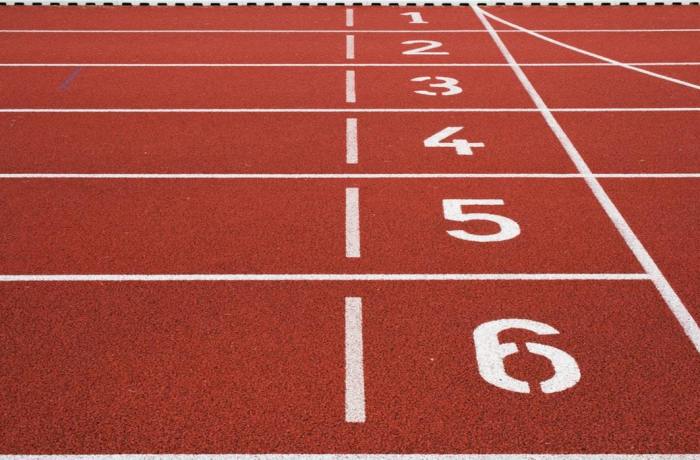Trans-identified NCAA champion hurdler ruled ineligible for women's US Olympic trials

The first openly trans-identified athlete to win an NCAA title has been ruled ineligible to compete in the 400-meter hurdles U.S. Olympic Trials.
CeCe Telfer, who won the women’s NCAA Division II 400-meter hurdles in 2019, was entered to compete in this week’s Olympic trials. However, USA Track & Field told The Associated Press that Telfer has not demonstrated that the eligibility criteria governed by World Athletics have been met.
“Following notification from World Athletics on June 17 that the conditions had not yet been met, USATF provided CeCe with the eligibility requirements and, along with World Athletics, the opportunity to demonstrate her eligibility so that she could compete at the U.S. Olympic Team Trials,” a USATF statement reads. “According to subsequent notification to CeCe from World Athletics on June 22, she has not been able to demonstrate her eligibility.”
World Athletics’ "Eligibility Regulations for Transgender Athletes," enacted in October 2019, states that biological males who identify as female and want to compete on the Olympic stage must have testosterone levels lower than five nanomoles per liter for at least 12 months.
Trans-identified athletes must keep their testosterone levels below that marker for as long as they want to be eligible in female competition categories.
David McFarland, Telfer’s manager, said his client will respect USATF’s decision. He told CNN that Telfer will continue to train for competition on the national and world stages “again soon.”
USATF assured that it “supports inclusivity and providing a clear path to participation in the sport for all, while also maintaining competitive fairness.”
“If CeCe meets the conditions for transgender athlete participation in the future, we wholeheartedly back her participation in international events as a member of Team USATF,” the statement reads.
Telfer made headlines after initially competing on the men’s track and field team at Franklin Pierce University in New Hampshire before taking time off, transitioning from male to female and winning the female Division II 400-meter hurdles in 2019.
The athlete previously refuted claims by others that he had a competitive advantage over biological female competitors. Telfer even claimed that there are some disadvantages to deal with in female competition, such as the distance between hurdles being shorter.
“And there are people who say I have the benefit of testosterone,” Telfer told OutSports in 2019. “But no: I have no benefit. I’m on hormone suppression, it doesn’t help. It’s another disadvantage. Cis women are producing more testosterone than the average trans female.”
“I’m the crazy one, to be the weakest female, the weakest link in the chain, to be competing against the top ones,” the athlete added. “I should be fingered as the stupid one, for wanting to do that in the first place.”
Under the NCAA guidelines published in 2011, male-to-female trans athletes are allowed to compete in women’s college athletics only if they undergo testosterone suppression for one calendar year.
Telfer was not the only trans-identified biological male athlete with eyes set on the Tokyo Olympics.
Laurel Hubbard, a 43-year-old trans-identified biological male from New Zealand, qualified to compete in women’s weightlifting at the Summer Olympics. Hubbard’s inclusion on the New Zealand team marks the first time a trans-identified athlete will compete in Olympic Games.
Hubbard’s inclusion, however, does not come without pushback from other competitors in the weight class.
Belgian weightlifter Anna Vanbellinghen said allowing a trans-identified male athlete to compete in women's weightlifting is "unfair to the sport and to the athletes."
"I understand that for sports authorities, nothing is as simple as following your common sense, and that there are a lot of impracticalities when studying such a rare phenomenon. But for athletes, the whole thing feels like a bad joke," Vanbellinghen told the Olympic news website Inside the Games.
Across the U.S., conservative lawmakers are introducing bills aimed at prohibiting biologically male competitors from competing in female athletic competitions. About six states have passed such laws in 2021: Alabama, Arkansas, Mississippi, Montana, Tennessee and West Virginia.
Idaho passed a similar measure in 2020 but has faced setbacks in the federal judiciary amid a lawsuit claiming such bills are discriminatory.
Earlier this year, the NCAA threatened to pull championship tournaments and other events from states that pass laws prohibiting trans-identified individuals from competing in women’s sports.
Last July, NCAA's Mark Emmert said during a congressional briefing that the NCAA has been working closely with the U.S. and International Olympic Committee in an effort “to keep our policies parallel around the participation of transgender athletes in intercollegiate athletics.”




























